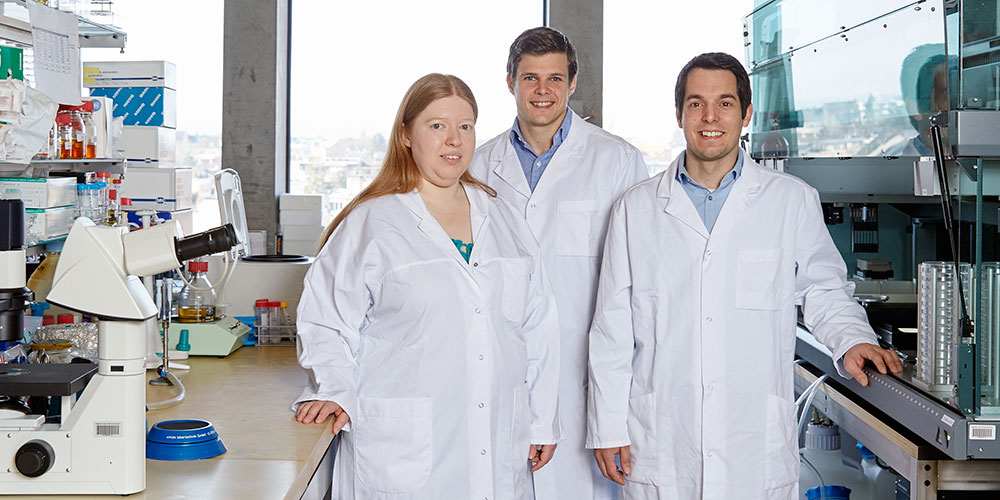Ferda Canbaz develops lasers for high-precision cutting. Things don’t always go to plan. But that only sparks her ambition all the more. Her research to date focused on investigating different laser materials and developing ultrafast lasers – now she is revolutionizing surgery as part of the MIRACLE team.
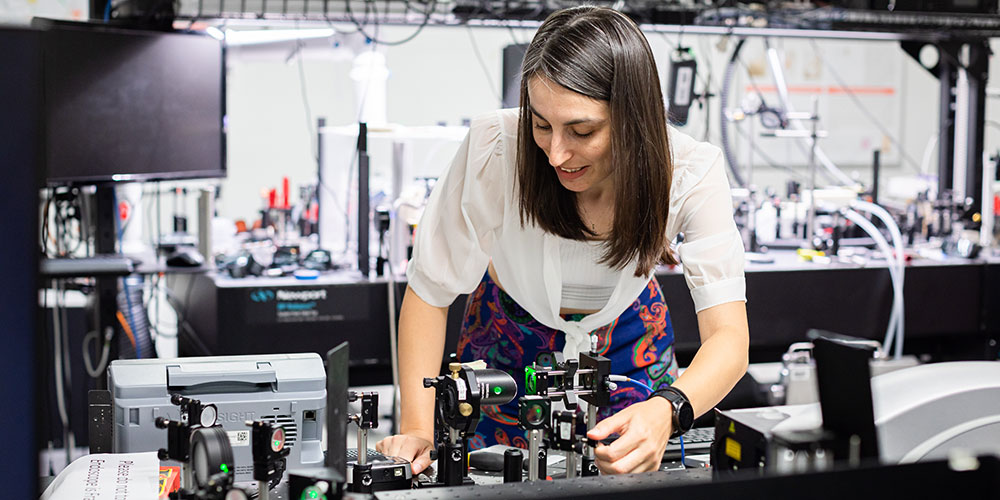
Initially, Nadine Felber couldn’t imagine doing a doctoral thesis. But the coronavirus pandemic and its effect on her private life made her change her mind. She’s now looking at the level of acceptance for new technologies in nursing care for the elderly. The question she’s trying to answer: “What is truth”?
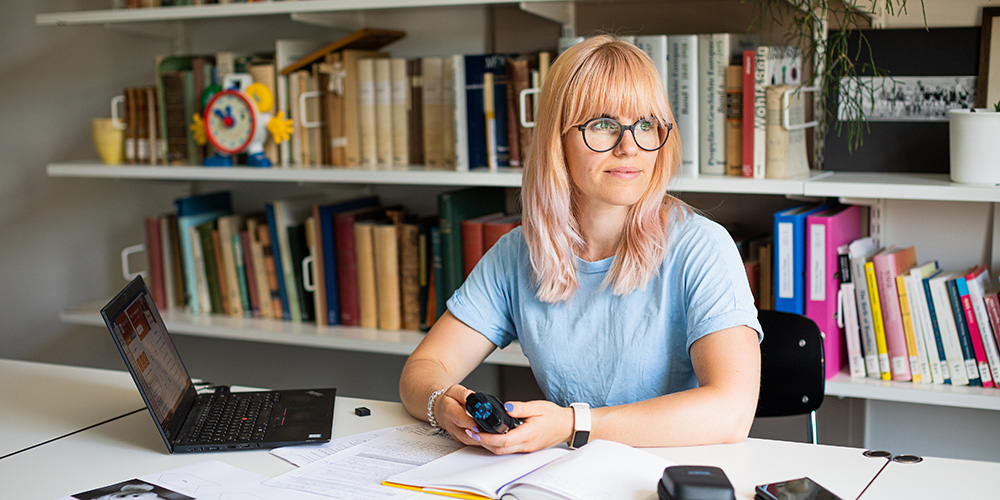
You can’t see Mitchell Brüderlin’s work – at least, not with the naked eye. The nanoscientist’s research on bacteria sits at the intersection of biology and physics. When he’s not losing track of time in the basement of the Biozentrum, he can look out from his office over the city where his scientific career began.
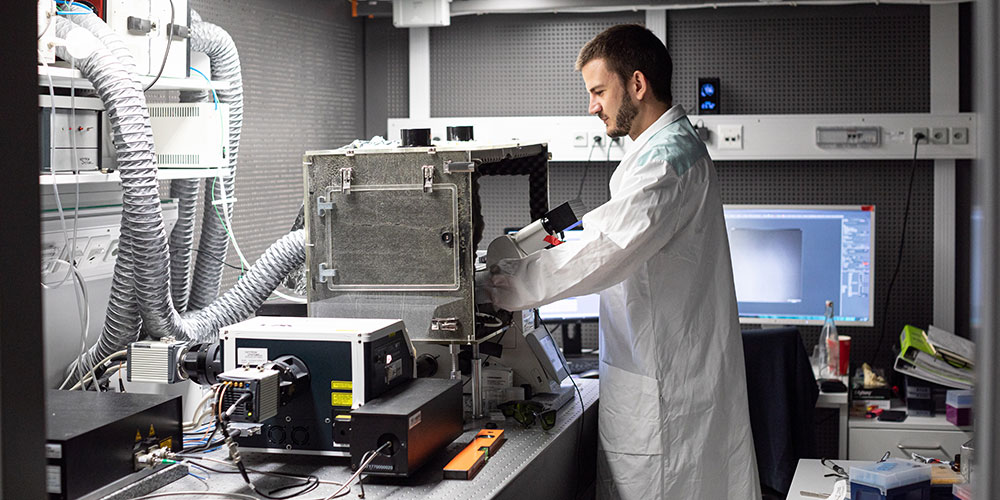
If evolutionary biologist Carolin Sommer-Trembo is not in her office, it is often because her work has taken her to a place others might think of as a holiday destination: Zambia. She is researching cichlids, which exhibit extraordinary diversity there, and investigating how curious the fish are. Working as a scientist involved turning her back on a career in dance.
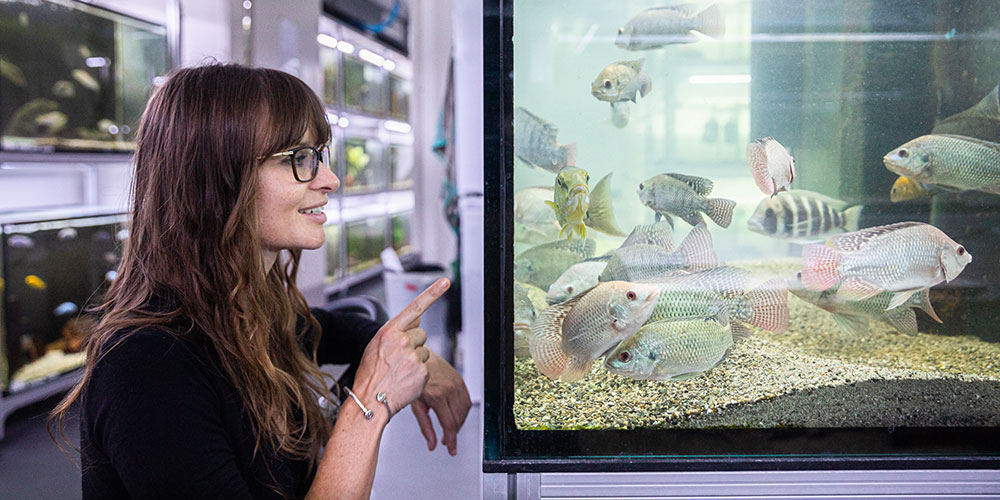
In her doctoral thesis, Julia Wartmann examines gender equality efforts in North and East Syria. Her field research provided her with insight into a war-torn society seeking to establish new ways to coexist.
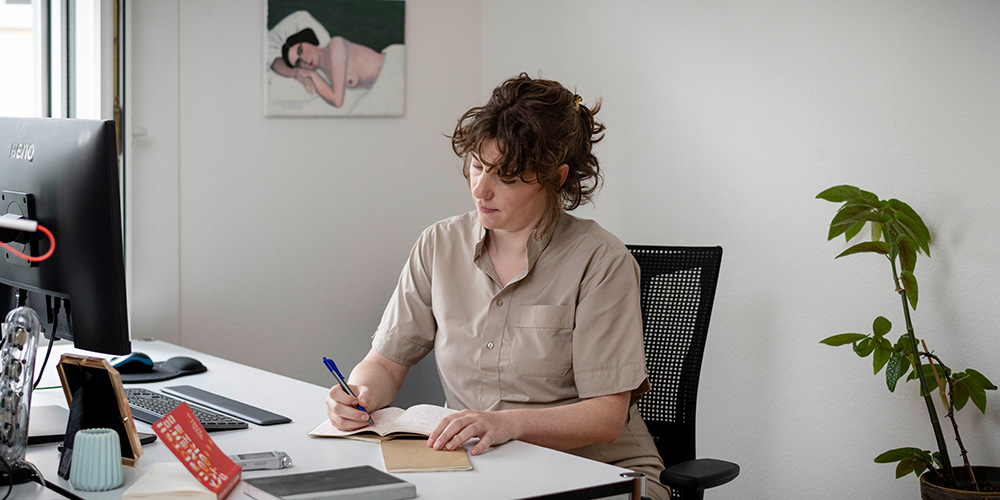
Sustainable agriculture will not be achieved by one universal solution. A meta-analysis by the University of Basel shows that the current focus on no-till farming does not achieve the desired results. A sustainable system of agriculture must be designed for local needs and in dialog with local farmers.

When choosing between multiple alternatives, people usually focus their attention on the two most promising options. The quicker we do that, the faster we make the decision, as report Psychologists from the University of Basel.

T3 Pharma, a biotech start-up company of the University of Basel with a focus on immuno-oncology, has been named “2018 Science Start-Up of the Year” by Falling Walls Venture. The award honors the scientist-entrepreneurs for their breakthrough business model in bacterial cancer therapy.
